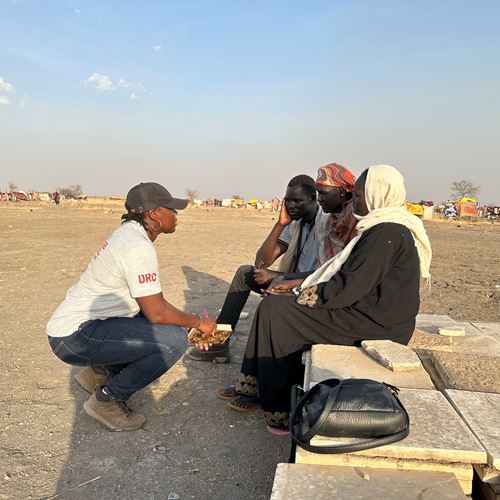DRC Sudan Regional Response Plan
1 file(s)
On 31 May 2023, DRC launched its Regional Response Plan aiming to address the most urgent needs of people affected by the conflict in Sudan, Central African Republic (CAR), Chad, Ethiopia and South Sudan.

Despite several ceasefires, the fighting between the Sudanese Armed Forces (SAF) and Rapid Support Forces (RSF) continues to have devastating consequences on civilians. As the humanitarian situation deteriorates, close to 1.4 million people have been pushed into displacement in search of safety, including over 343,000 people across international borders.
Relying on its strong operational presence, DRC is committed to responding to the unfolding crisis not only within Sudan, but also in neighbouring countries including South Sudan, Ethiopia, Central African Republic, as well as in Chad through partners.
In Sudan, DRC continues to operate in Gedaref and South Kordorfan with the provision of life-saving assistance and deployed emergency teams to participate in protection and assessments. In South Sudan, DRC deployed its Mobile Response Teams to Renk and other entry points to provide critical lifesaving assistance to new arrivals – including large numbers of South Sudanese refugees who were forced to return as a consequence of the conflict. Mobile Response Teams were also deployed in CAR to conduct needs assessments.
As the number of people displaced by the conflict is expected to continue to grow both internally and across borders, DRC is scaling up its regional response as detailed in its USD 17.2 million, 6-month Regional Response Plan.
During the first three months of the response, DRC will focus on providing lifesaving support to those who are displaced and have lost their homes and livelihoods and have little in the way of coping mechanisms. As soon as the conditions allow, early solutions and early recovery activities will complement, where possible, emergency interventions.

“The needs are incredibly high, yet the humanitarian responses in all countries affected by the Sudan crisis are dramatically underfunded. The international community must come together to support the urgent delivery of multisectoral lifesaving assistance to the thousands of people affected by the conflict,”
/ James Curtis, DRC Executive Director in East Africa and the Great Lakes.
1 file(s)
1 Parties to the conflict in Sudan and authorities in all countries affected by displacement should ensure that the operating environment is conducive to the delivery of lifesaving humanitarian assistance. This includes unimpeded and uninterrupted access to those affected by the conflict, including the most vulnerable in hard-to-reach areas.
2 Donors should enable and support the continued response of local actors and NGOs with existing access to and acceptance of affected populations. Alternative banking/cashflow mechanisms must be explored as formal financial institutions remain closed, and donors should accept less formalised channels so that staff can be paid, and activities can be supported.
3 Donors and UN should continue to explore options to release additional funding to Sudan and neighbouring countries to respond to new and increasing humanitarian needs.